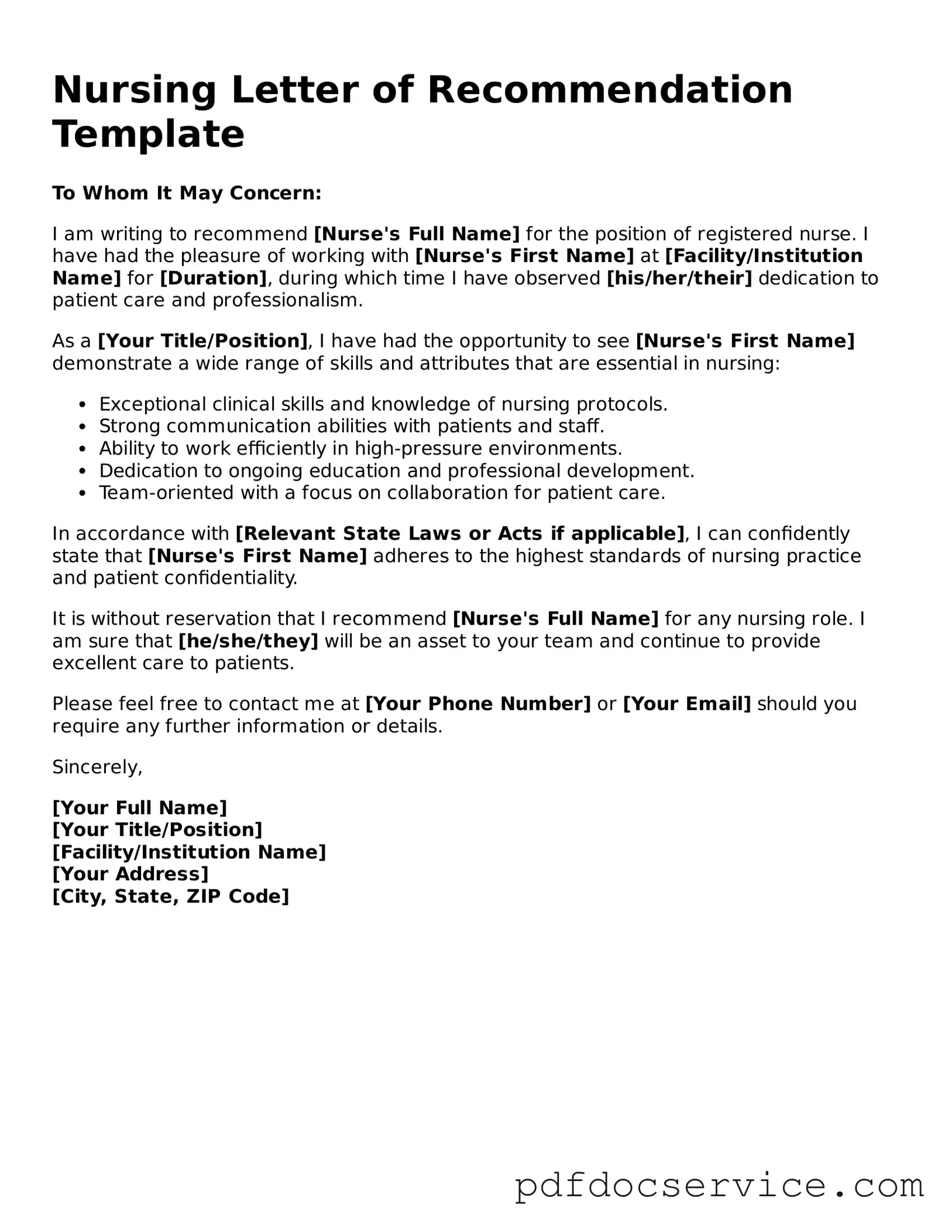What is a Nursing Letter of Recommendation?
A Nursing Letter of Recommendation is a formal document that highlights a nurse's qualifications, skills, and experiences. Typically written by a supervisor, instructor, or colleague, this letter serves to support a nurse's application for a job, nursing school, or certification. It provides insights into the nurse's work ethic, clinical skills, and interpersonal abilities, helping to paint a comprehensive picture of their professional character.
Who should write the Nursing Letter of Recommendation?
It is best to have the letter written by someone who knows the nurse well in a professional context. This could include:
-
Supervisors or managers from previous jobs
-
Clinical instructors or professors from nursing school
-
Colleagues who have worked closely with the nurse
The writer should be able to provide specific examples of the nurse's skills and contributions to enhance the letter's effectiveness.
What should be included in the Nursing Letter of Recommendation?
A strong Nursing Letter of Recommendation should include the following elements:
-
Introduction:
A brief introduction of the writer and their relationship to the nurse.
-
Qualifications:
A summary of the nurse's qualifications, including education and certifications.
-
Skills and Attributes:
Specific examples of the nurse's clinical skills, work ethic, and interpersonal abilities.
-
Conclusion:
A strong endorsement of the nurse's capabilities and a statement of confidence in their future success.
How long should the Nursing Letter of Recommendation be?
The ideal length for a Nursing Letter of Recommendation is typically one page. This length allows the writer to provide sufficient detail without overwhelming the reader. A concise, focused letter is often more impactful than a lengthy one. Aim for clarity and relevance in the content.
How should the Nursing Letter of Recommendation be submitted?
Submission methods can vary depending on the requirements of the institution or employer. Common ways to submit the letter include:
-
Directly to the nursing school or employer via email or online portal.
-
Hand-delivering a printed copy.
-
Mailing a hard copy to the appropriate address.
Always check the specific guidelines provided by the institution or employer to ensure compliance with their submission process.
Can I request a Nursing Letter of Recommendation from someone I don't know well?
While it is possible to request a letter from someone you don't know well, it may not yield the best results. A strong recommendation comes from someone who can provide detailed insights into your skills and experiences. If you must ask someone less familiar, consider providing them with your resume, a list of accomplishments, and specific points you would like them to address. This can help them write a more personalized and effective letter.

